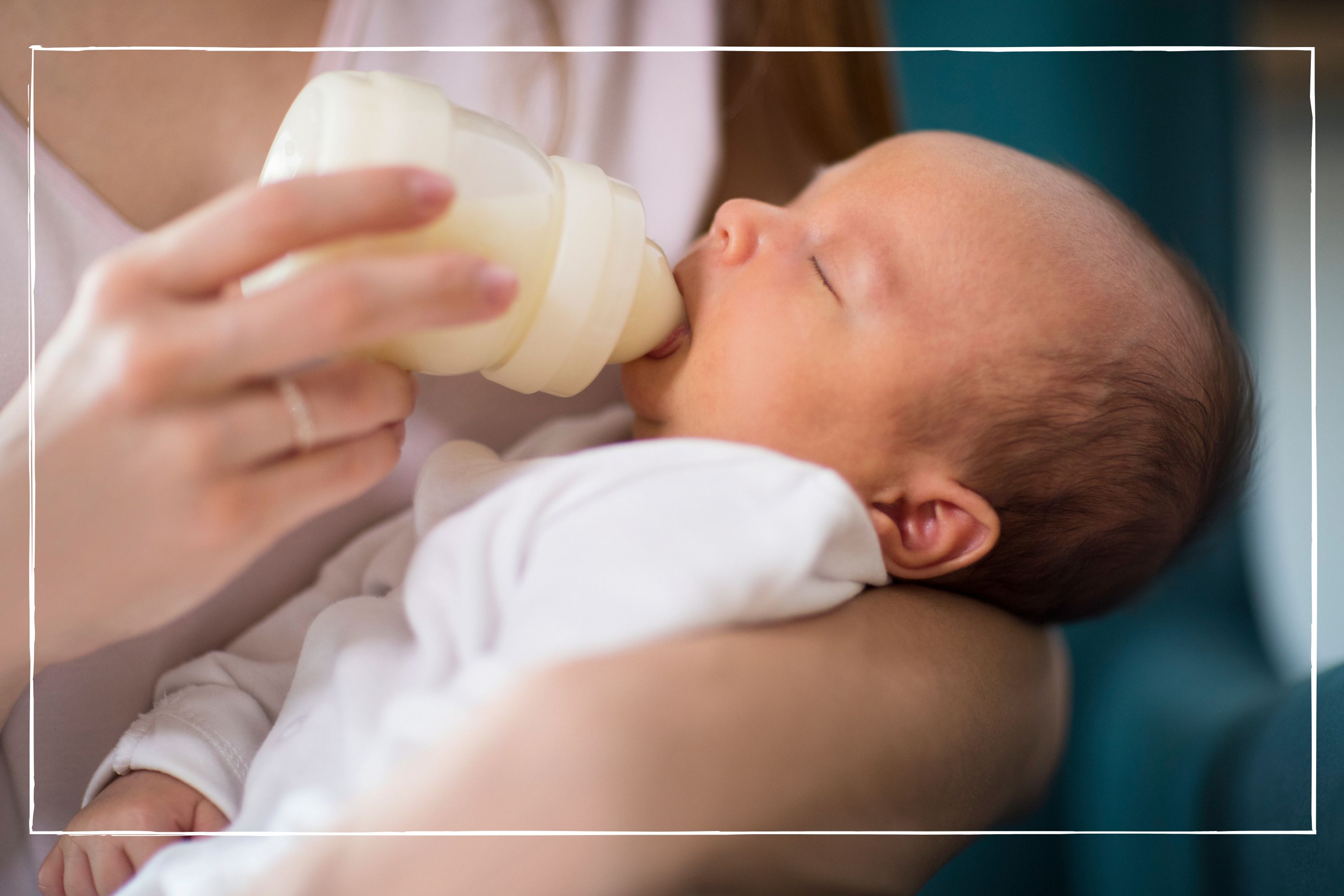
Choosing how to feed your child can be an emotional rollercoaster. And whichever option you choose, whether it's breastfeeding or bottle feeding, there is always a cost, be it financial or emotional.
The cost to raise a child is rising, thanks to the high cost of living and average childcare costs being on the up too. This means it's all the more-important to budget effectively for your family.
We spoke to Jon and Grace, parents of a three-year-old boy, about their decision to bottle feed and how it impacted their family's finances.
The cost of bottle feeding
After making the decision to bottle feed their son, Jon and Grace had to make sure they had all the equipment they would need. Grace explains: "To start with, we knew we'd need to buy all the necessary equipment to support our bottle-feeding plans. We had a steriliser and a Tommee Tippee prep machine, as well as all the bottles and teats. Then we'd buy the powdered formula and each tub would last us about two weeks."
"It might have worked out more expensive overall than breastfeeding, but the cost of not bottle feeding would have been higher in other ways."
Jon, dad of one
Breaking down those costs, it looks like Jon and Grace spent just over £350 on their bottle feeding journey.
- Tommee Tippee microwave steam steriliser - £17
- Tommee Tippee Perfect Prep Machine - £79.99 from John Lewis, also available from Amazon.
- Various bottles and teats - around £40 in total (Jon and Grace loved these Tommee Tippee bottles)
- Hungry baby milk formula - £217.50 (£14.50 per 800g tub)
"We started weaning Max when he was about six months old, and at that point, each tub of formula would last us about a month. He moved on to cow's milk instead of formula when he was about one. When he moved on to cow's milk, we'd buy an extra couple of pints per week."
Jon adds: "It might have worked out more expensive overall than breastfeeding, but the cost of not bottle feeding would have been higher in other ways."
Why we chose to bottle-feed
Speaking of their bottle-feeding journey, mum Grace says: "Our plan was that I would breastfeed Max and move to bottle-feeding when I went back to work. But we started bottle feeding with formula earlier than planned, when Max was about eight weeks old. I'd felt like I was breastfeeding all the time, but he wasn't getting enough and was always hungry.
"We knew pumping wasn't going to be a feasible option for me, so we moved to a hungry baby formula. Some people worry that this kind of formula can cause their baby to suffer from constipation, but that wasn't our experience at all.
"We would mostly use powdered formula for Max's bottles, but if we were going out and about, we'd have some ready mixed options on hand that were so much more practical."
Grace's partner, Jon, adds: "Moving to formula meant we could both feed Max, know exactly how much he was getting and manage his intake, much more so than with breastfeeding. Max was born during the pandemic too, so being able to share this responsibility was really important when we were in a bubble, just the three of us. As new parents, that was really challenging, but when rules meant that we could form a wider support bubble, that was a massive help."
"It was absolutely the right choice for our family..."
Grace was worried that she might face judgement for feeding Max with formula, but ultimately knew that she and Jon were making the right decision for their family. Grace says: "I was glad I breastfed in the beginning, so Max would benefit from the colostrum in my milk, and I did feel a sense of pressure to breastfeed when I was in the hospital after giving birth. I was a bit worried that I would be judged for giving Max formula, but when it came down to it, I cared more about making sure he was getting enough to eat. Even with the expense of bottle feeding, I wouldn't change a thing. It was absolutely the right choice for our family. "
Jon adds: "It was really important to Grace that she went back to work after having Max, and it was important to me to support her. Being able to share the feeding responsibilities and making sure Max was getting enough food to keep him healthy, was key, and it was then a relatively seamless transition when we were reliant on others to provide childcare."
If you choose to bottle-feed your baby, make sure you know how to sterilise a baby bottle to keep your little one safe and healthy.







